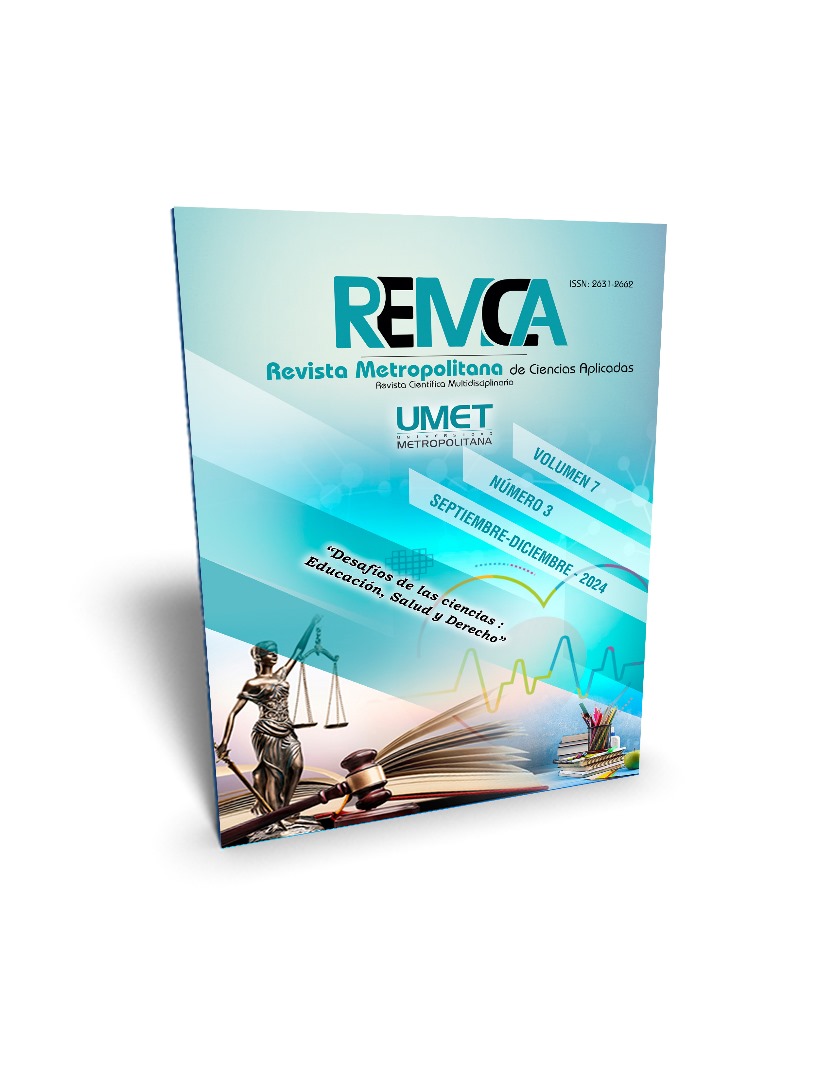The guarantee of due process and the practice of evidence in telematic hearings
DOI:
https://doi.org/10.62452/9tstwf06Keywords:
Telematic hearing, evidentiary assessment, guarantee of due process, evidence practice, technological means, judicial processAbstract
The implementation of telematic hearings during the pandemic has been a valuable tool to connect the procedural parties with the judge, streamlining judicial procedures. However, this change presents challenges in terms of respecting due process guarantees, especially in terms of authenticity of information and protection of personal data. Due process guarantees respect for the fundamental rights of people and regulates judicial acts and procedures. The implementation of telematic hearings has raised concerns about the technical quality of the connection, the security of the information and the lack of physical interaction to evaluate the credibility of the testimonies. The research methods used include observation to determine regularities in the hearings, bibliographic review to analyze relevant documents, and expert judgment through interviews and surveys. Likewise, methods such as analysis-synthesis and inductive are used to delve into the impact of procedural guarantees, lege ferenda to propose legal modifications, and historical-logical to evaluate compliance with guarantees and possible solutions. To address these concerns, a modification to the General Organic Code of Processes is proposed, establishing clear protocols that include verification of the identity of the declarant, the prohibition of reading notes during the declaration, and the possibility of applying additional verification in case of measures of doubts about the authenticity of the information. The proposal seeks to guarantee the integrity of the judicial process in telematic hearings, ensuring respect for the principles of due process and equal conditions for all parties involved.
Downloads
References
Andrade Gómez, B. A. (2023). Las garantías del debido proceso en las audiencias de acción de protección via telemática. (Tesis de maestría). Universidad de Chimborazo.
Batista Hernández, N., Andrade Carrera, A. R., & Leyva Vázquez, M. Y. (2023). Medidas cautelares para proteger el derecho laboral de personas con enfermedades catastróficas, terminales y raras en Ecuador. Revista Dilemas Contemporáneos: Educación, Política y Valores, 11(4). https://doi.org/10.46377/dilemas.v11iEspecial.3959
Carrión Cueva, L. (2000). El Debido Proceso. Temis.
Estupiñán Figueroa, J., Cjhiriboga, G., & Figueroa Robles, J. P. (2021). La audiencia telemática y su vulneracion al principio de inmediación testimonial en materia penal comprendido en el periodo de mayo a diciembre del 2020 en la ciudad de Loja. (Tesis de maestría). Universidad Regional Autonóma de Los Andes.
Garate Guerra, K. N. (2023). La aplicación de las garantías del debido proceso y desarrollo de las audiencias telemáticas en la unidad judicial civil con sede en el cantón Ibarra durante el año 2021. (Tesis de maestría). Universidad Técnica del Norte.
Humeres Guajardo, N. (2023). Los principales problemas de debido proceso que podrían generar las audiencias y juicios telemáticos. aj programa de extensión. https://academiajudicial.cl/wp-content/uploads/2022/01/Humeres-Los-principales-problemas-de-debido-proceso-que-podrian-generar-las-audiencias-y-juicios-telematicos.pdf
Mendoza Macías, F. E. (2022). La práctica probatoria en las audiencias telemáticas y el derecho a la defensa. (Tesis de maestría). Universidad San Gregorio de Portoviejo.
Pineda González, D. A. (2022). Las audiencias telemáticas en materias no penales aplicadas en épocas de emergencia, regla o excepción, ventajas y desventajas. (Trabajo de titulación). Universidad de Cuenca.
Rodríguez Andrade, H. A. (2021). Derecho a la tutela judicial y debido proceso en las audiencias, via telemática. (Examen complexivo). Universidad Católica de Santiago de Guayaquil.
Zambrano Pasquel, A. (1995). El Debido Proceso Penal en un Estado de Derecho. Opúsculo en Debido Proceso y Razonamiento Judicial. ARA Editores E.I.R.L.
Zavaleta Rodríguez, R. (2006). Razonamiento Judicial. Ara Editores Eirl.
Downloads
Published
Issue
Section
License
Copyright (c) 2024 Melida Michelle Alcocer-Proaño, Noel Batista-Hernández (Autor/a)

This work is licensed under a Creative Commons Attribution-NonCommercial-ShareAlike 4.0 International License.
Authors who publish in Revista Metropolitana de Ciencias Aplicadas (REMCA), agree to the following terms:
1. Copyright
Authors retain unrestricted copyright to their work. Authors grant the journal the right of first publication. To this end, they assign the journal non-exclusive exploitation rights (reproduction, distribution, public communication, and transformation). Authors may enter into additional agreements for the non-exclusive distribution of the version of the work published in the journal, provided that acknowledgment of its initial publication in this journal is given.
© The authors.
2. License
The articles are published in the journal under the Creative Commons Attribution-NonCommercial-ShareAlike 4.0 International License (CC BY-NC-SA 4.0). The terms can be found at: https://creativecommons.org/licenses/by-nc-sa/4.0/deed.en
This license allows:
- Sharing: Copying and redistributing the material in any medium or format.
- Adapting: Remixing, transforming, and building upon the material.
Under the following terms:
- Attribution: You must give appropriate credit, provide a link to the license, and indicate if any changes were made. You may do this in any reasonable manner, but not in any way that suggests the licensor endorses or sponsors your use.
- NonCommercial: You may not use the material for commercial purposes.
- ShareAlike: If you remix, transform, or build upon the material, you must distribute your creation under the same license as the original work.
There are no additional restrictions. You may not apply legal terms or technological measures that legally restrict others from doing anything the license permits.




